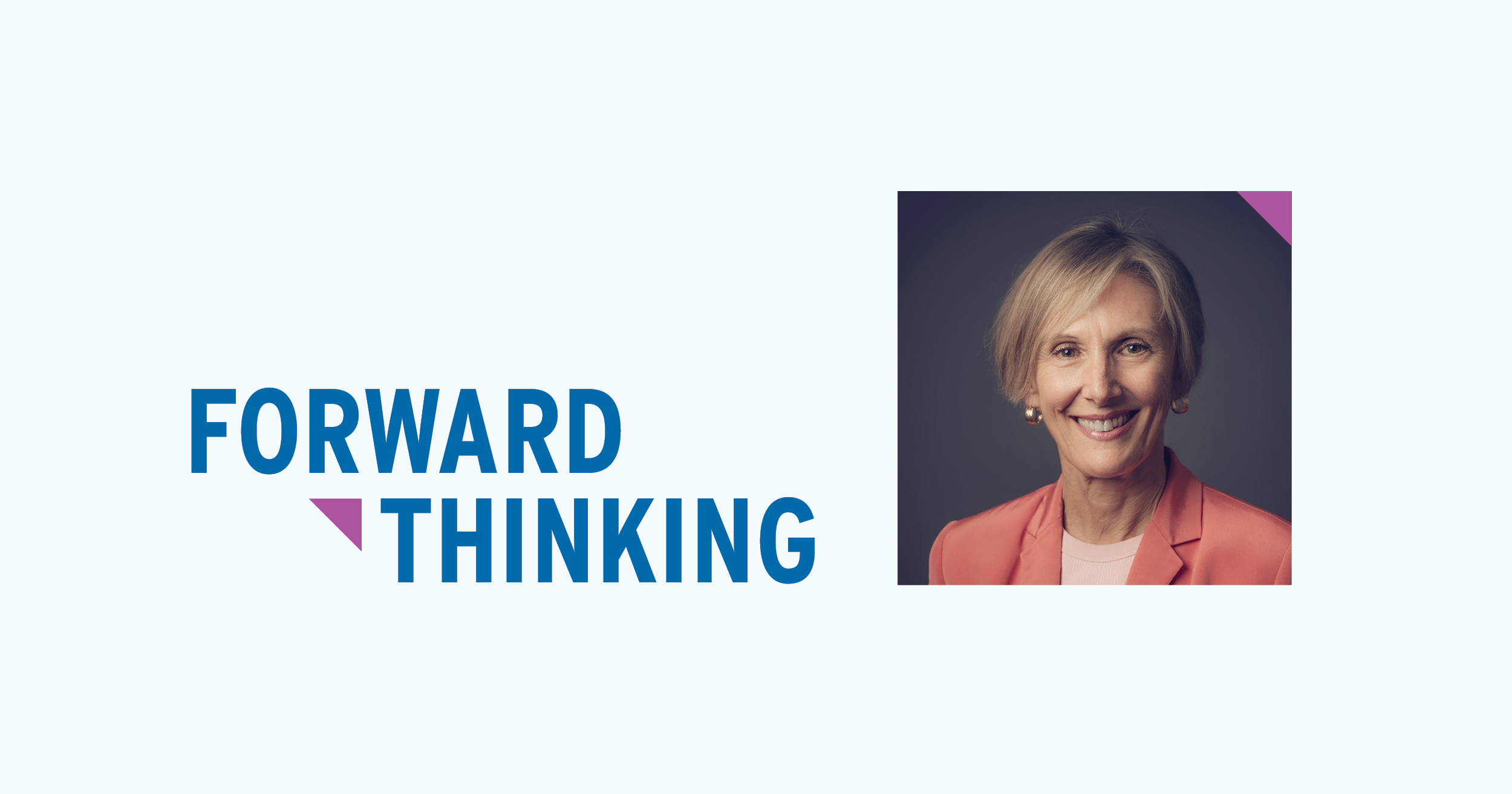From floundering to flourishing: Doing KT in a pandemic
13 September 2021

Forward Thinking is MSFHR’s blog focusing on what it takes to be a responsive and responsible research funder. In this article, MSFHR Manager, Knowledge Translation, Geneveive Creighton, discusses MSFHR’s knowledge translation-informed approach to COVID-19, doing KT in a pandemic, and reflects on a KT success story.
Research evidence that doesn’t have a planned path to impact often stagnates, is not implemented in practice or policy, and fails to inform the research of others. We know that the gap between knowledge discovery and adoption represents a missed opportunity for knowledge to improve the health and well-being of our communities.
Planned activities designed to facilitate the pathway from evidence to impact are known as knowledge translation (KT) activities. For years, MSFHR has taken a leadership role to advance the science and practice of KT, and build KT capacity through funding opportunities, training, and resources.
But what happens to KT activities in the midst of a global pandemic?
How we responded
From our experience working with researchers engaged in KT, we understood that COVID-19 would present numerous challenges to health researchers, healthcare and health system research. At the beginning of the pandemic, we worked with KT leaders to create the COVID-19 KT Resource Hub to support researchers to engage in knowledge translation in this new research environment. KT Connects, our beginner level webinar series created in collaboration with Arthritis Research Canada, has focused a number of sessions on doing KT during COVID-19. Dr. Sarah Munro, for example, spoke about methods for doing integrated knowledge translation and Dr. Michelle Stack described methods for engaging with policy makers during times of social disruption.
We continue to bring together KT leaders and practitioners to support one another, build capacity, and advocate for KT across the province. For example, we formed a working group made up of KT specialists in health authorities and the BC Centre for Disease Control, as well as patient groups to explore COVID-19 KT collaboration and co-learning opportunities across the organizations.
To support COVID-19 research evidence needs from our government partners, we helped to facilitate engagements between researchers and the BC Ministry of Health. One example of this is the Best Brains Exchange, a partnership between CIHR, the BC Ministry of Health and MSFHR. In 2020 this event went virtual and brought researchers and policy-makers together to discuss innovations in virtual care for mental health and substance use to immediately inform health policy.
In Summer 2020, we surveyed the BC health research community and conducted interviews with senior research leaders to find out how the COVID-19 pandemic was impacting the health research community. In an earlier Forward Thinking post, Maija Tiesmaki, MSFHR’s Senior Specialist, Strategy, reflected on what we learned and how the Foundation responded to support health researchers.
What BC health researchers told us
Unsurprisingly, respondents reported that COVID-19 had a significant impact on their KT activities. More than half of respondents reported that the pandemic had changed, delayed, or halted ‘end of grant’ activities designed to share research findings with others. A little less than half reported that the pandemic made it difficult to collaborate with research users and project partners in the development or conduct of their studies.
Survey respondents described frustration with the de-prioritization of non-COVID-19 related research:
“While the rapid response, COVID-19 focused biomedical research was often fast tracked into practice, there was a decline of interest in and funding for research related to other important health issues.”
“As COVID-19 floods the news cycle, dissemination of non-COVID-19 research has been challenged with little media interest. Researchers waiting to garner public interest on new innovations, normally eagerly highlighted by journalists, have experienced little uptake.”
Others reported difficulties in creating collaborations and engaging research users:
“Research collaborations with patients and the public have become more complicated, particularly those involving the elderly, the chronically ill, and those living in rural and remote communities. Vital collaborative research has slowed or halted altogether.”
“Research engaging researcher users on the front lines of the healthcare response to COVID-19 and with government policymakers has faced barriers due to a lack of time and capacity.”
But the news is not all bad!
Some researchers were able to pivot their research and found that the pandemic created plentiful opportunities for research dissemination. Researchers in infectious disease and public health, who normally struggle to get public attention, are receiving numerous requests for evidence from media and government.
A respondent who identified as First Nations, elucidated how she was able to adapt her protocols to online, through video or conference calls. She noted the importance of taking time, to acknowledge the traditional territories, to have an Elder open with greeting and prayer, and to allow space for reflection.
Some research teams have seen KT flourish during the pandemic.
One of these teams is led by Dr. Skye Barbic, an MSFHR Scholar and PI on a 2019 Convening & Collaborating (C2) award. The focus of her C2 award is to bring together young people, their families, service providers, and emergency physicians to co-develop a “pathway of support” for youth and young adults with mental health and substance use concerns.
The study is founded in evidence that suggests that over half of Canadian youth and young adults presenting to an Emergency Department with needs in mental health and substance use have not had any previous mental health-related contact with the health care system. In a workshop format these diverse research partners envisioned an intervention.
When COVID-19 struck, it quickly became clear that an in-person workshop would not be feasible. The research team put their heads together and decided to reach out to participants individually to gather their thoughts and ideas.
While the group synergy of an in-person workshop may have been lost, the research team was pleasantly surprised at what transpired. Dr. Barbic found that workshops tended to bring most of the same people to the table; those who have the confidence and the time, live local, and have the ability to collaborate with a group for a whole day.
The team’s call for one-on-one interviews resulted in far greater diversity of young people, including racialized, LGBTQIA-identifying, and youth from rural parts of the province.
On reflection, Dr. Barbic’s team found that the diversity of the people and the depth of the discussion was entirely appropriate to the project. The rich, authentic and contextually-sensitive data was vital because of the diverse youth the intervention would serve.
Perhaps it was the more confidential format of the interview or the fact that youth could choose to be interviewed by a youth researcher unaccompanied by an adult but, according to Dr. Barbic, many participants were exceptionally open.
In addition, by hosting virtual sessions, the team was able to redirect budget for hotels and food, and to hire and train four additional youth researchers. As the research proceeds, it is increasingly grounded in the perspectives of the young people that the project will serve.
These examples illustrate just some of the ways we are supporting paths to research implementation and impact. Now more than ever, it’s important to address the gaps between scientific discovery and knowledge adoption so that the opportunity isn’t missed for vital health research to improve the health of British Columbians and our communities.
To learn more about MSFHR’s support for BC health researchers during the COVID-19 pandemic, take a look at our last Forward Thinking article.





